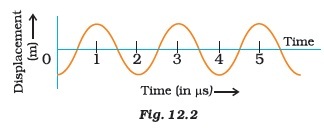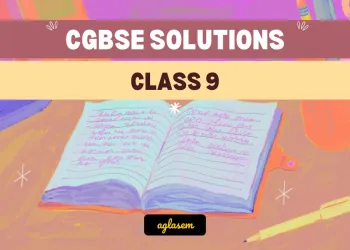Candidates can download NCERT Exemplar Class 9 Science Unit 12 from this page. The exemplar has been provided by the National Council of Educational Research & Training (NCERT) and the candidates can check it from below for free of cost. It contains objective, very short answer type, short answer type, and long answer type questions. Along with it, the answer for each question has also been provided. From the NCERT Exemplar Class 9 Science Unit 12, candidates can understand the level and type of questions that are asked in the exam.
NCERT Exemplar Class 9 Science Unit 12 Sound
NCERT Class 9 Science Unit 12 is for Sound. The type of questions that will be asked from NCERT Class 9 Science Unit 12 are displayed in the below provided NCERT Exemplar Class 9 Science Unit 12. With the help of it, candidates can prepare well for the examination.
Also Check NCERT Solutions for Class 9 Science
Multiple Choice Questions
- Note is a sound
(a) of mixture of several frequencies
(b) of mixture of two frequencies only
(c) of a single frequency
(d) always unpleasant to listen - A key of a mechanical piano struck gently and then struck again but much harder this time. In the second case
(a) sound will be louder but pitch will not be different
(b) sound will be louder and pitch will also be higher
(c) sound will be louder but pitch will be lower
(d) both loudness and pitch will remain unaffected - In SONAR, we use
(a) ultrasonic waves
(b) infrasonic waves
(c) radio waves
(d) audible sound waves - Sound travels in air if
(a) particles of medium travel from one place to another
(b) there is no moisture in the atmosphere
(c) disturbance moves
(d) both particles as well as disturbance travel from one place to another. - When we change feeble sound to loud sound we increase its
(a) frequency
(b) amplitude
(c) velocity
(d) wavelength - In the curve (Fig.12.1) half the wavelength is

(a) A B
(b) B D
(c) D E
(d) A E - Earthquake produces which kind of sound before the main shock wave begins
(a) ultrasound
(b) infrasound
(c) audible sound
(d) none of the above - Infrasound can be heard by
(a) dog
(b) bat
(c) rhinoceros
(d) human beings - Before playing the orchestra in a musical concert, a sitarist tries to adjust the tension and pluck the string suitably. By doing so, he is adjusting
(a) intensity of sound only
(b) amplitude of sound only
(c) frequency of the sitar string with the frequency of other musical instruments
(d) loudness of sound
Short Answer Type Questions
- The given graph (Fig.12.2) shows the displacement versus time relation for a disturbance travelling with velocity of 1500 m s–1. Calculate the wavelength of the disturbance

- Which of the above two graphs (a) and (b) (Fig.12.3) representing the human voice is likely to be the male voice? Give reason for your answer.

- A girl is sitting in the middle of a park of dimension 12 m × 12 m. On the left side of it there is a building adjoining the park and on right side of the park, there is a road adjoining the park. A sound is produced on the road by a cracker. Is it possible for the girl to hear the echo of this sound? Explain your answer.
- Why do we hear the sound produced by the humming bees while the sound of vibrations of pendulum is not heard?
- If any explosion takes place at the bottom of a lake, what type of shock waves in water will take place?
- Sound produced by a thunderstorm is heard 10 s after the lightning is seen. Calculate the approximate distance of the thunder cloud. (Given speed of sound = 340 m s–1.)
- For hearing the loudest ticking sound heard by the ear, find the angle x in the Fig.12.4.

- Why is the ceiling and wall behind the stage of good conference halls or concert halls made curved?
Long Answer Type Questions
- Represent graphically by two separate diagrams in each case
(i) Two sound waves having the same amplitude but different frequencies?
(ii) Two sound waves having the same frequency but different amplitudes.
(iii) Two sound waves having different amplitudes and also different wavelengths. - Establish the relationship between speed of sound, its wavelength and frequency. If velocity of sound in air is 340 m s–1, calculate
(i) wavelength when frequency is 256 Hz.
(ii) frequency when wavelength is 0.85 m. - Draw a curve showing density or pressure variations with respect to distance for a disturbance produced by sound. Mark the position of compression and rarefaction on this curve. Also define wavelengths and time period using this curve.
| <« Previous | Next » |
Answers
To get study material, exam alerts and news, join our Whatsapp Channel.







